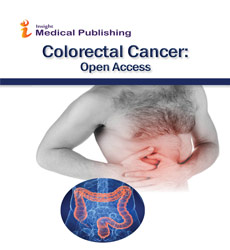Abstract
Conditional Colon Cancer Survival in the United States
Purpose: As long-term colon cancer survivors increase, there is a growing need for subgroup-specific analysis of conditional survival. This paper presents fiveyear conditional relative survival rates of colon cancer, with emphasis placed on subgroup-specific estimates by age, sex, race, ethnicity, marital status, year of diagnosis, and stage at diagnosis.
Methods: Analyses are based on 96,022 males and 101,793 females diagnosed with colon cancer during 2000 through 2008, followed through 2012, using data from the National Cancer Institute Surveillance, Epidemiology, and End Results program.
Results: Mean five-year conditional relative survival increased for years already survived for local staged disease by 2.3% per year (p<0.05), 5.0% per year (p<0.05) for regional staged disease, and 10.7% (p<0.05) per year for distant staged disease. Five-year conditional relative survival rates were significantly lower in those less than 65 years of age (p<0.05), more so in unstaged cases; among Blacks (p<0.05), more so in distant and unstaged cases; and other race (p<0.05), more so in local and regional staged cases. The rates were significantly higher in females (p<0.05), more so in regional and distant staged cases; non-Hispanics (p<0.05); and married patients (p<0.05), more so for local and regional staged cases.
Conclusion: These results provide further useful prognostic information to patients, their families, and physicians tailored to the time already survived since diagnosis. This can be informative in terms of shared decision making and time to “cure”.
Author(s):
Ray M Merrill, Reshley A Dalisay and Natalie Dayton
Abstract | Full-Text | PDF
Share this

Google scholar citation report
Citations : 92
Colorectal Cancer: Open Access received 92 citations as per google scholar report
Abstracted/Indexed in
- Google Scholar
- JournalTOCs
- China National Knowledge Infrastructure (CNKI)
- Directory of Research Journal Indexing (DRJI)
- WorldCat
- Publons
- International Committee of Medical Journal Editors (ICMJE)
- Secret Search Engine Labs
Open Access Journals
- Aquaculture & Veterinary Science
- Chemistry & Chemical Sciences
- Clinical Sciences
- Engineering
- General Science
- Genetics & Molecular Biology
- Health Care & Nursing
- Immunology & Microbiology
- Materials Science
- Mathematics & Physics
- Medical Sciences
- Neurology & Psychiatry
- Oncology & Cancer Science
- Pharmaceutical Sciences

